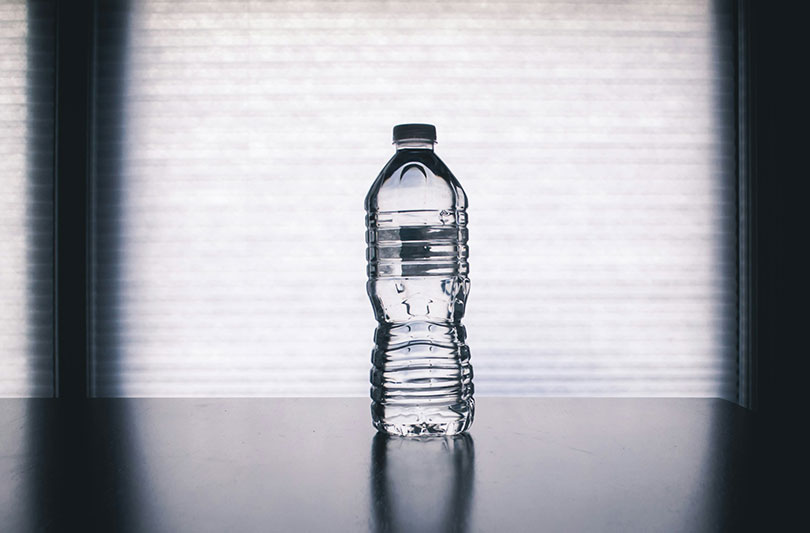If you drink plenty of water you might be wondering if it’s and good idea to get a water filter instead of buying bottled water on a regular basis, and the short answer is yes. In short, a water filter for the home can be very cost-effective, environmentally sustainable and offer fewer plastic waste concerns, while delivering comparable or superior water quality to bottled alternatives when properly maintained.
UK Tap Water Quality: The Starting Point
UK tap water ranks among the safest in the world, with rigorous testing standards enforced by the Drinking Water Inspectorate (DWI). According to the DWI’s latest annual report, 99.97% of tests on public water supplies in England meet all standards, with similarly high compliance across Wales, Scotland and Northern Ireland.
The Drinking Water Inspectorate’s regulatory framework ensures water companies conduct comprehensive sampling at treatment works, service reservoirs and customers’ taps. This includes tests for:
- Microbiological parameters (E. coli, coliform bacteria)
- Chemical substances (lead, pesticides, nitrates)
- Physical properties (colour, taste, odour)
- Radioactive substances
Despite these high standards, many UK households still choose a tap water filter for the home due to the following:
- Regional variations in hardness levels
- Chlorine taste and odour concerns
- Ageing infrastructure affecting water quality
- Specific health considerations for vulnerable groups
Home Water Filtration Systems
A water filter for home use offers several advantages for UK households looking to improve their drinking water beyond the tap.
Common Types of Water Filter
Carbon Filtration Systems
Activated carbon filters reduce chlorine, improve taste and odour, and remove some organic compounds. These systems range from simple jug filters (£15–30) to under-sink units (£70–300). Carbon filters typically need replacement every 2–6 months, depending on usage and model.
Reverse Osmosis (RO) Systems
A drinking water filter using reverse osmosis can remove a wide range of contaminants including heavy metals, fluoride, nitrates, and some microorganisms. RO systems typically cost £200–600 for home installation and require periodic membrane replacement (every 2–3 years), and pre-filter changes (every 6–12 months).
UV Purification
Ultraviolet systems target microorganisms without chemicals, often used in conjunction with other filtration methods. Systems range from £150–500 with annual bulb replacement costs of approximately £30–50.
Ion Exchange Water Softeners
While primarily designed to reduce limescale by removing calcium and magnesium, these systems also improve drinking water taste in hard water areas. According to the Drinking Water Inspectorate (DWI), much of England and Wales has water classified as “moderately hard,” “hard,” or “very hard,” particularly in the southeast, Midlands, and eastern regions, making softeners a valuable investment for many households.
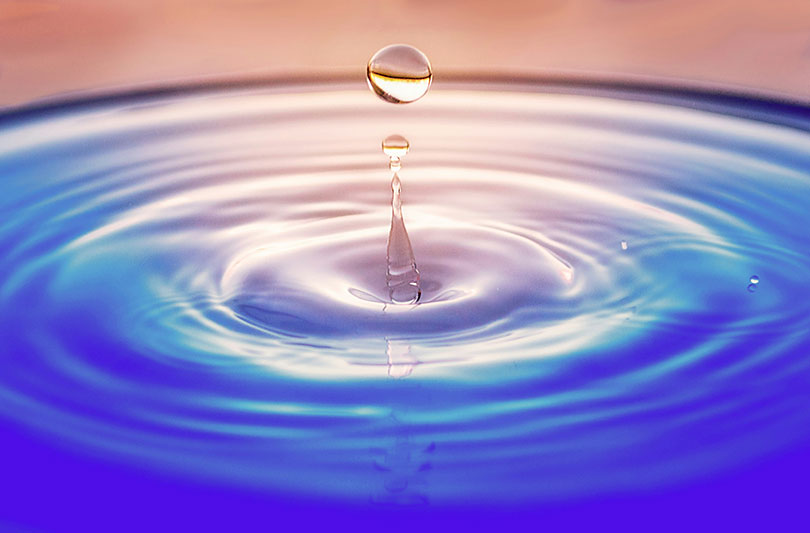
Benefits of Home Filtration
Cost Efficiency
A family of four consuming 2 litres of water daily each would spend approximately:
- Bottled water: £1,460–2,920 annually (50p–£1 per litre)
- Jug filter: £95–150 annually (purchase plus replacement cartridges)
- Under-sink water filter for the home: £150–250 first year, then £50–100 annually for maintenance
Even the most comprehensive water filter for home system represents approximately 10% of the cost of premium bottled water over five years.
Environmental Impact
Home filtration dramatically reduces plastic waste compared to bottled water. The average UK household purchasing bottled water generates approximately 7.7kg of plastic waste annually from water bottles alone.
Convenience
Having filtered water on demand eliminates shopping trips, storage concerns, and heavy lifting associated with bottled water.
Customisation
Different filter technologies can address specific local water concerns, such as hardness in East Anglia or potential lead issues in properties with older plumbing. A water filter for the entire home can even address all water points, rather than just one location such as the kitchen tap.
Bottled Water: Types and Benefits
On average, people in the UK drink more than 50 litres of bottled water per year. With a population of about 67 million, this means annual bottled water consumption in the UK exceeds 3 billion litres and is likely over 4 billion litres as the market continues to grow.
Categories of Bottled Water in the UK
Natural Mineral Water
Natural mineral water is subject to the strictest purity regulations of all bottled waters, drawn from a protected underground source that must be microbiologically safe from the point of collection to bottling, and without any chemical treatment. It retains a stable mineral composition typically rich in calcium, magnesium, and sulphates that reflect the geology of its source. These rigorous standards ensure its untouched purity and consistent mineral profile set it apart from other commercial waters.
Spring Water
Spring water is collected where underground water naturally flows to the surface through rock layers, often emerging at a spring or borehole. It’s naturally filtered and may contain beneficial minerals, though its composition doesn’t need to remain stable over time. Spring water must meet strict chemical and microbiological safety standards before bottling, but unlike mineral water, it can undergo a wider range of permitted treatments, such as UV or ozone provided these don’t alter its essential qualities.
Table Water (UK term)
Table water is regulated in the UK as “other bottled water” and differs from mineral or spring water in that it doesn’t need to be bottled at the source. It can be drawn from public or private supplies, then treated or modified, such as through filtration, mineral enhancement, or carbonation before bottling. Commonly found in supermarket own-label brands, table water offers a flexible and cost-effective option for everyday hydration, provided it meets chemical and microbiological safety standards.
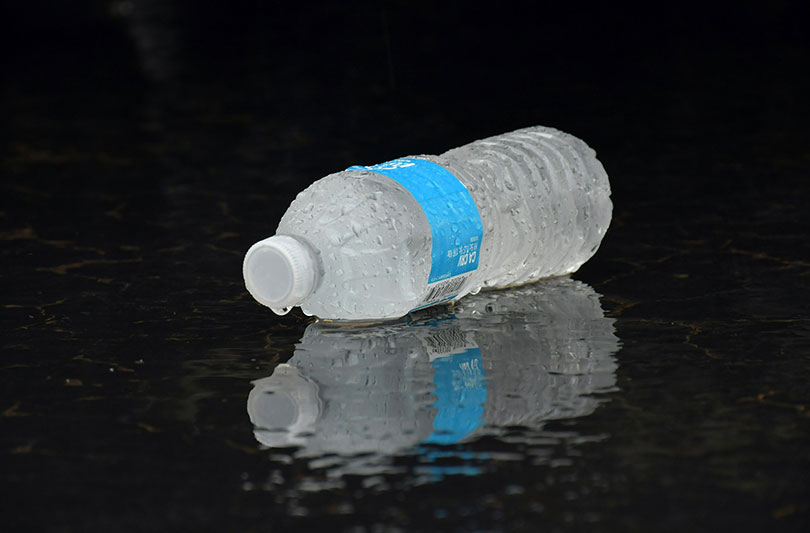
Regulatory Oversight
The Food Standards Agency oversees bottled water regulations in the UK, with specific requirements for labelling, composition, and safety testing. While bottled water faces strict controls, FSA regulations differ from those governing tap water, with each framework addressing different risks and priorities.
Benefits of Bottled Water
Consistency
Mineral and spring waters offer consistent composition regardless of location. This reliability means you can expect the same taste, mineral profile, and quality whether you’re at home, at work, or travelling across the country.
Emergency Preparedness
Bottled water proves invaluable during supply interruptions. When local water infrastructure fails or becomes contaminated, having a readily available supply of safe drinking water can be crucial for family health and safety. Emergency services often recommend keeping a three-day supply of bottled water per person, making it an essential component of any household emergency preparedness plan.
Portability
The convenience of bottled water shines during travel, exercise, and situations where carrying a reusable bottle isn’t practical. Whether you’re hiking, attending outdoor events, or simply need immediate hydration without access to filtration systems, bottled water provides instant access to clean drinking water.
Mineral Content
Many bottled waters provide beneficial minerals like calcium and magnesium, which can be particularly valuable in soft water areas where these nutrients are naturally lacking. Some mineral waters contain significant amounts of these essential minerals, potentially contributing to daily nutritional requirements.
Environmental Considerations: A Clear Distinction
Plastic Pollution
The UK consumes approximately 7.7 billion plastic water bottles annually, with recycling rates hovering around 70%. This means over 2 billion bottles potentially enter landfill or the environment each year, creating an environmental burden on society.
Carbon Footprint Comparison
Industry studies show a stark contrast in environmental impact between bottled and filtered tap water:
- Bottled water: Generates approximately 300–600 grams of CO₂ equivalent (CO₂e) per litre, factoring in plastic production, bottling, transportation, and refrigeration.
- Home-filtered tap water: Produces just 0.2–0.5 grams of CO₂e per litre, primarily from the manufacturing and replacement of filters.
This reflects a carbon footprint up to 1,000 times greater for bottled water which highlights the environmental benefit of choosing tap water with a domestic filter system.
Water Waste Factors
Reverse osmosis systems traditionally waste water during the filtration process, typically 3–4 litres per litre produced. However, modern RO drinking water filters for the home have reduced this ratio significantly, with some high-efficiency models achieving 1:1 or better waste-to-production ratios.
Bottled water also has hidden water costs in production, with manufacturing processes using 1.5–3 litres of water per litre bottled.
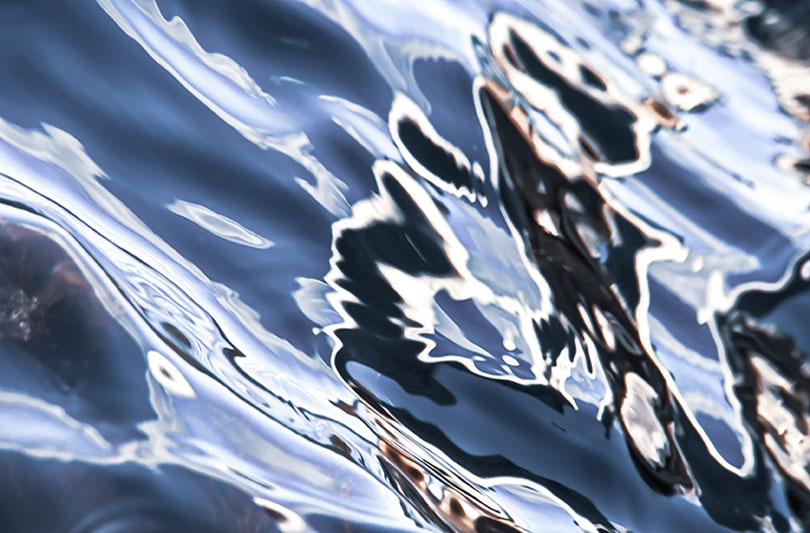
Health Considerations
Contaminant Removal Effectiveness
Filtration Systems
Modern multi-stage filtration using a water filter for the home can remove:
- 95–99% of lead, mercury and other heavy metals
- 99% of chlorine and related by-products
- 99.99% of microorganisms (with UV or RO systems)
- Various pesticides and pharmaceutical residues
Bottled Water
Processing varies significantly between brands:
- Natural mineral water undergoes minimal treatment
- Other bottled waters may use processes similar to home filtration
- Some studies have detected microplastics in bottled water samples
Microplastic Concerns
Research published in the journal Environmental Science & Technology found microplastic contamination in 93% of bottled water samples tested globally. While health impacts remain under investigation, this represents an emerging concern for bottled water consumers.
A drinking water filter for the home with sub-micron filtration capability can reduce microplastic particles in tap water.
Practical Considerations for UK Households
When making the choice between a water filter for the home and bottled water, several practical factors influence the decision.
Space Requirements
Bottled water requires significant storage space, a family of four using bottled water exclusively would need approximately 56 litres weekly, requiring substantial cupboard or garage space.
Filtration systems vary in space needs:
- Jug filters: Refrigerator space
- Countertop systems: Worktop footprint
- Under-sink water filter: Cabinet space
- Water filter for the entire home: Utility room installation
Maintenance Requirements
Filter Maintenance
All filtration systems require regular maintenance:
- Jug filters: Cartridge replacement every 4–8 weeks
- Under-sink systems: Filter changes every 6–12 months
- RO systems: Pre-filters every 6–12 months, membranes every 2–3 years
- UV systems: Annual bulb replacement
- Water softeners: Salt replenishment and periodic servicing
Neglected maintenance of a water filter can lead to bacterial growth and reduced effectiveness, potentially creating water quality issues that wouldn’t occur with properly bottled water.
Household Size and Water Usage
Larger households generally realise greater cost savings from a water filter due to economies of scale. For single-person households with minimal water consumption, the break-even point may take longer to reach.
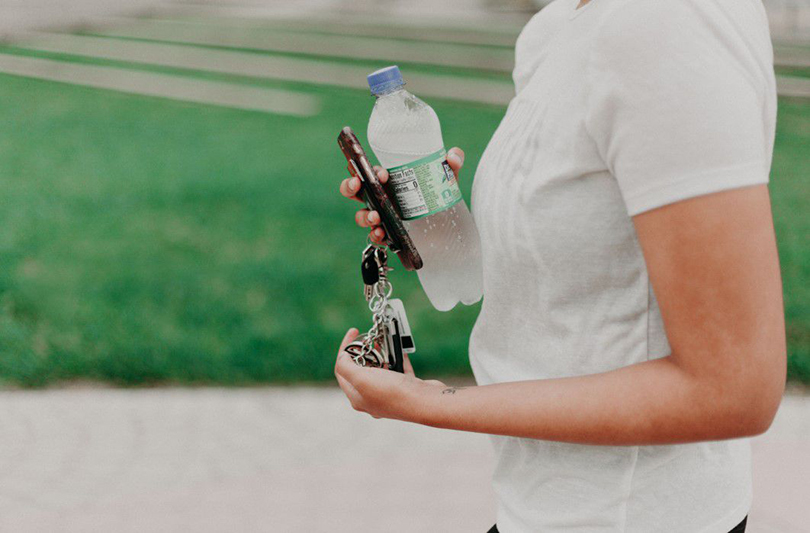
Special Considerations for Vulnerable Groups
Infants and Pregnant Women
The NHS and Public Health England advise that UK tap water is generally safe for preparing infant formula. However, in areas with lead plumbing or elevated nitrate levels, a tap water filter for the home or certain bottled waters may be recommended. For households with lead pipes or fittings, point-of-use filtration certified to remove lead provides a targeted solution.
Immunocompromised Individuals
People with severely compromised immune systems sometimes receive medical advice to use specific water treatment approaches. Options may include:
- Boiling tap water
- Using certified filters with absolute 1-micron filtration
- Certain bottled waters
Consultation with healthcare providers is essential for this group.
Making the Right Choice for Your Household
When a Water Filter for Home Makes Most Sense
- Long-term residents looking for cost savings
- Environmentally conscious households
- Families with high water consumption
- Homes in hard water areas benefiting from combined softening and filtration
- Properties with older plumbing requiring specific contaminant removal
- Homeowners wanting a water filter for the entire home solution
When Bottled Water May Be Preferable
- Temporary accommodations or short-term residents
- During travel or when away from home
- Emergency situations and power outages
- Specific medical requirements necessitating consistent mineral content
- Households with unreliable water supply
Hybrid Approaches
Many UK households adopt balanced approaches:
- Home filtration for daily use
- Small bottled water supply for emergencies
- Reusable bottles filled with filtered water for portability
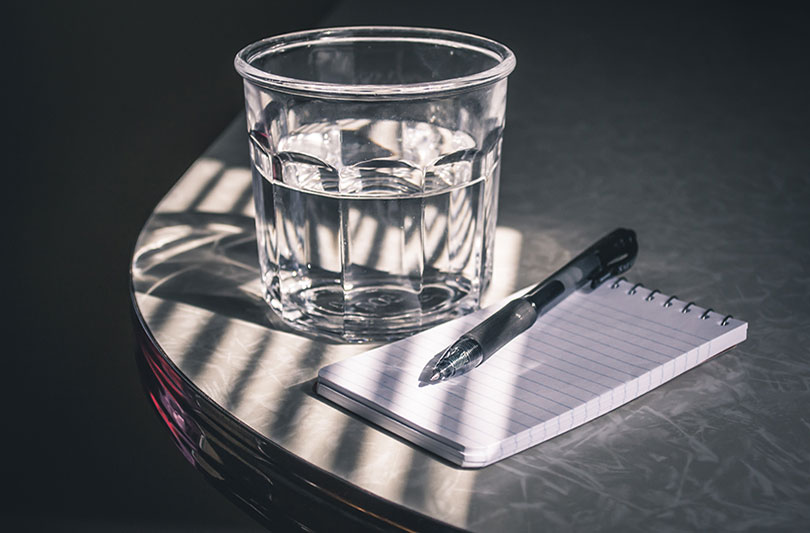
Ready to Make the Switch? Let Us Guide You to the Perfect Solution
The evidence is clear: home water filtration offers superior value, environmental benefits, and convenience compared to bottled water for most UK households. But with so many options available, choosing the right system for your specific needs can feel overwhelming.
That’s where Hart Water comes in. With over 25 years of experience serving families across East Anglia, we’ve helped more than 1,000 households transform their water quality. Whether you’re dealing with hard water issues in Suffolk, concerned about chlorine taste, or simply want to reduce your environmental footprint, we have the expertise to recommend the perfect solution for your home.
Why Choose Hart Water for Your Home Filtration Needs?
Complete Service Package
From free water quality surveys to professional installation and ongoing maintenance, we handle everything. Our City & Guilds qualified engineers ensure your system is installed correctly and continues to perform optimally for years to come.
Proven Track Record
Our 5-star ratings on Google and Facebook, plus a 9.94 score from over 1,100 Checkatrade reviews, demonstrate our commitment to exceptional customer service.
Local Expertise
Based in Haverhill, we understand the unique water challenges faced by households across Suffolk, Norfolk, Cambridgeshire, and Essex. From the extremely hard water in East Anglia to specific concerns in period properties, we’ve seen it all.
Take the First Step Towards Better Water Quality
Stop buying expensive bottled water or putting up with poor-tasting tap water. Contact Hart Water today for your free, no-obligation water quality assessment and discover how much you could save while enjoying superior water quality throughout your home.
Join the thousands of satisfied customers across East Anglia who’ve already made the smart switch to home water filtration. Your wallet, your health, and the environment will thank you.

